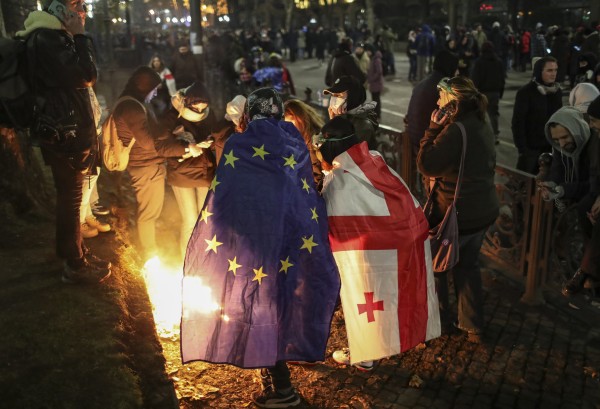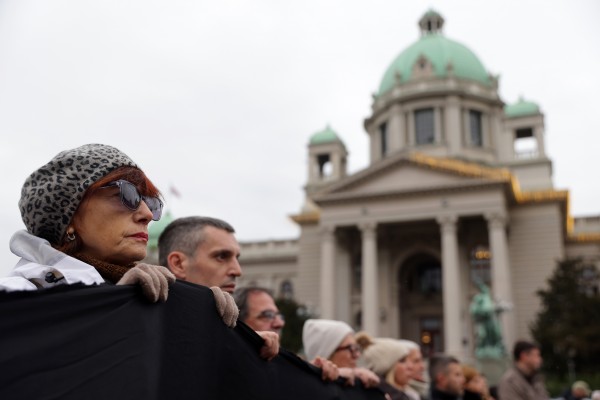The International Press Institute (IPI) and the South East Europe Media Organisation today reiterated earlier calls for Turkish Prime Minister Recep Tayyip Erdogan to refrain from verbal attacks on the media.
This latest call follows the 30 January assault on journalists during a public speech in which the prime minister condemned the press for being biased in their coverage of the recent Gaza conflict. The scene turned chaotic and people in the crowd listening to the prime minister turned on photographers and other journalists.
“Although entitled to his opinions, the prime minister should exercise greater restraint when speaking about the media publicly,” IPI Director David Dadge said. “Politicians in countries such as Sri Lanka and Venezuela have often courted attacks on the media by their words and the Turkish prime minister should avoid playing the same dangerous game.”
The assault occurred during the opening ceremony of an Istanbul metro system station. In his address, Erdogan accused the media of supporting Israel’s actions in Gaza, of propagating lies, and of “standing by others rather than standing by the prime minister of the Turkish Republic.”
These comments stirred the audience to jeer at the approximately 70 reporters of both the national and international media present at the speech, according to correspondents at the scene.
During his talk Erdogan invoked the history of the Ottoman Turks’ battle at Canakkale, the Turkish name for the first world war Gallipoli campaign, after which the audience chanted “Ask us to shoot, we will shoot, ask us to die, we will die.”
Local media report that, following this, a woman shouted a comment in support of Erdogan, which others in the audience apparently misunderstood as criticism. The crowd booed and jostled her, forcing Erdogan’s bodyguards to intervene.
Journalists attempted to take pictures of the incident, but the crowd then turned upon them –first verbally with chants of “media out!”, then physically. The police stepped in, creating a barrier between the mob and the media.
The crowd’s attack on the journalists lasted over five minutes but there were no serious injuries. Erdogan made no attempt to calm the angry crowd, instead chastising the journalists for taking pictures of the disturbance rather than doing “what they had come here to do,” namely reporting on his speech.
These events took place the day after Erdogan angrily stormed off the stage at the World Economic Forum in Davos, following a heated discussion with Israeli President Shimon Peres about Israel’s actions in Gaza.
Erdogan has recently made several public attacks on the media.
On 10 September 2008, reacting to media coverage of the Deniz Feneri e.V. charity scandal, Erdogan threatened the Dogan Media Group with an ultimatum, demanding they reveal their true reasons for reporting on the issue or face Erdogan revealing these himself.
IPI called on the Turkish leader to retract this ultimatum, stating that “there is no place for Erdogan to question or criticise the media’s right to report on an issue of public importance.” Erdogan then attacked IPI at a public rally on 13 September, saying that IPI had “no right to criticise him over his treatment of the country’s largest news organisation.”
Erdogan followed this on 19 September by calling on members of his party to boycott media critical of the government, and “not to take these newspapers to your homes.” Several Turkish media organisations – including IPI’s National Committee in Turkey – reacted to this pressure by issuing a joint-statement condemning the prime minister’s calls for a boycott.
# # #
For more information, contact:
Timothy Spence
Press and Communications Manager
Tel: +43 1 512 90 11
E-mail: tspence(at)freemedia.at
IPI: The Global Network for a Free Media
The International Press Institute is dedicated to the furtherance and safeguarding of press freedom, the protection of freedom of opinion and expression, the promotion of the free flow of news and information, and the improvement of the practices of journalism.
SEEMO is a network of editors, media executives and leading journalists in South East Europe and an IPI affiliate.


